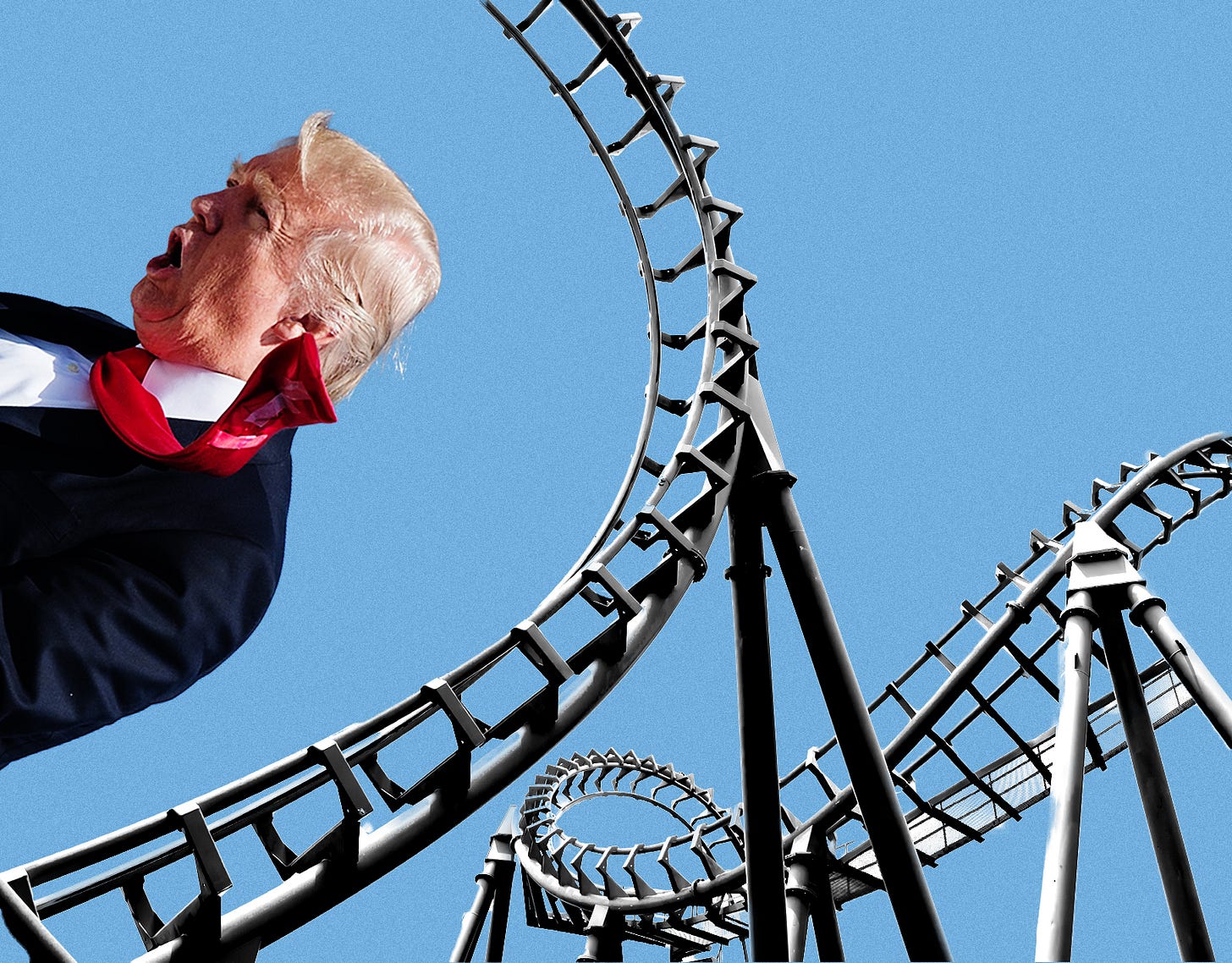Trump Could Still Win
Beware of the rally ’round the flag effect.
Donald Trump’s handling of the pandemic has confirmed for many of us—re-confirmed, for the umpteenth time—that Donald Trump does not deserve a second term. The country deserves competent and responsible leadership and so, for the country’s sake, Trump should lose in November. He probably will lose. But this is by no means inevitable. So we can’t be complacent. Three points:
(1) Incumbency
Incumbents usually win. The last three incumbents have. It’s been a generation since an incumbent president was defeated—and President George H. W. Bush’s campaign was, in effect, an attempt to win a fourth term for Reagan-Bush, which would have been tough anyway. As it happens, the elder Bush ran a terrible campaign, was wounded badly by Ross Perot (in my judgment, ambiguous exit poll notwithstanding), had a younger and more vigorous opponent, and was penalized because the end of the Cold War made voters believe that his skill set was no longer necessary. And still, he lost by fewer than 6 percentage points. Ronald Reagan and Richard Nixon won their reelections and in between them Jimmy Carter lost—but that race was basically a dead heat ten days out. And judging by his Ukraine adventures—does anyone remember them?—Trump will be unusually unprincipled in using the advantages of his office in pursuit of reelection. If you’re willing to go further than any predecessor in deploying federal resources, unembarrassed to take advantage of disinformation and misinformation, and eager to collaborate with foreign powers, then the possibility of your victory simply can’t be ruled out.
(2) Hyper-partisanship
Over the last 20 years, neither party has won less than 45.7 percent of the vote in a presidential election. This means Trump begins with a high enough baseline that, if he adds just a few percentage points, he can win. Those extra points could be due to a lucky break that changes the dynamic of the race at the last minute. Or to a real-world event. Or an October surprise engineered by a foreign power. And because of the Republican party’s current structural advantage in the Electoral College, it remains possible that Trump could lose the popular vote by anywhere from 3 million to 5 million votes and still, if the distribution is just right, win his second term.
(3) The Rally ’Round the Flag Effect
Most people I’ve spoken with figure that his terrible handling of the pandemic, plus the now-inevitable recession, have doomed Trump. But look at Trump’s numbers now. His job approval is barely down at all. His poll numbers are still pretty much where they were three months ago, when the virus was still officially confined to China and the U.S. economy was, at least superficially, strong. Maybe there’ll be a lag and some of his supporters will desert Trump. Or maybe the bottom could fall out of his numbers with independents, as happened for a while following his defense of white supremacists in Charlottesville. But it seems just as likely that there could be some movement in the other direction. This would be shocking on the merits, but not based on history. That’s because of the rally ’round the flag effect, whose potency shouldn’t be underrated. In a crisis, Americans have a pronounced tendency to rally to the incumbent president. This often happens even if the crisis is partly the president’s fault or he hasn’t handled it particularly well. George W. Bush wouldn’t have won in 2004 if he hadn't had a little residue of the huge surge to him in 2001 and 2002. Because of this effect, Jimmy Carter—after a year of gas lines, soaring inflation, AND the Iran hostage crisis, AND the Soviet invasion of Afghanistan—was able to defeat Ted Kennedy for the Democratic nomination in 1980, and was virtually even with Reagan through most of the fall. (Until the one and only debate, eight days before Election Day, when his support finally collapsed.) Carter lost by almost 10 points, but on Election Day in 1980 the hostages were still being held in Tehran and the Soviets were in Afghanistan and the economy was still shaky, so it became easy, so to speak, for the electorate to finally turn decisively against him. By this November, it’s possible we will have come through this pandemic and the economy will be roaring back. One fervently prays this will be the case. But if that happens, then the rallying ’round the flag could be followed by lots of self-reassuring that we didn’t handle it so badly and back-patting that, in the end, we did okay: America is great and our leadership wasn’t all that bad. Voters may be able to tell themselves that however badly Trump mismanaged the crisis in the early days, all’s well that ends well. Such a sentiment could at least keep Trump competitive. It could allow him to win. We can’t count on events defeating Trump. He needs to be defeated by voters who understand why he deserves to lose. God knows, he does. But as John F. Kennedy reminded us, here on earth, God’s work must truly be our own.



